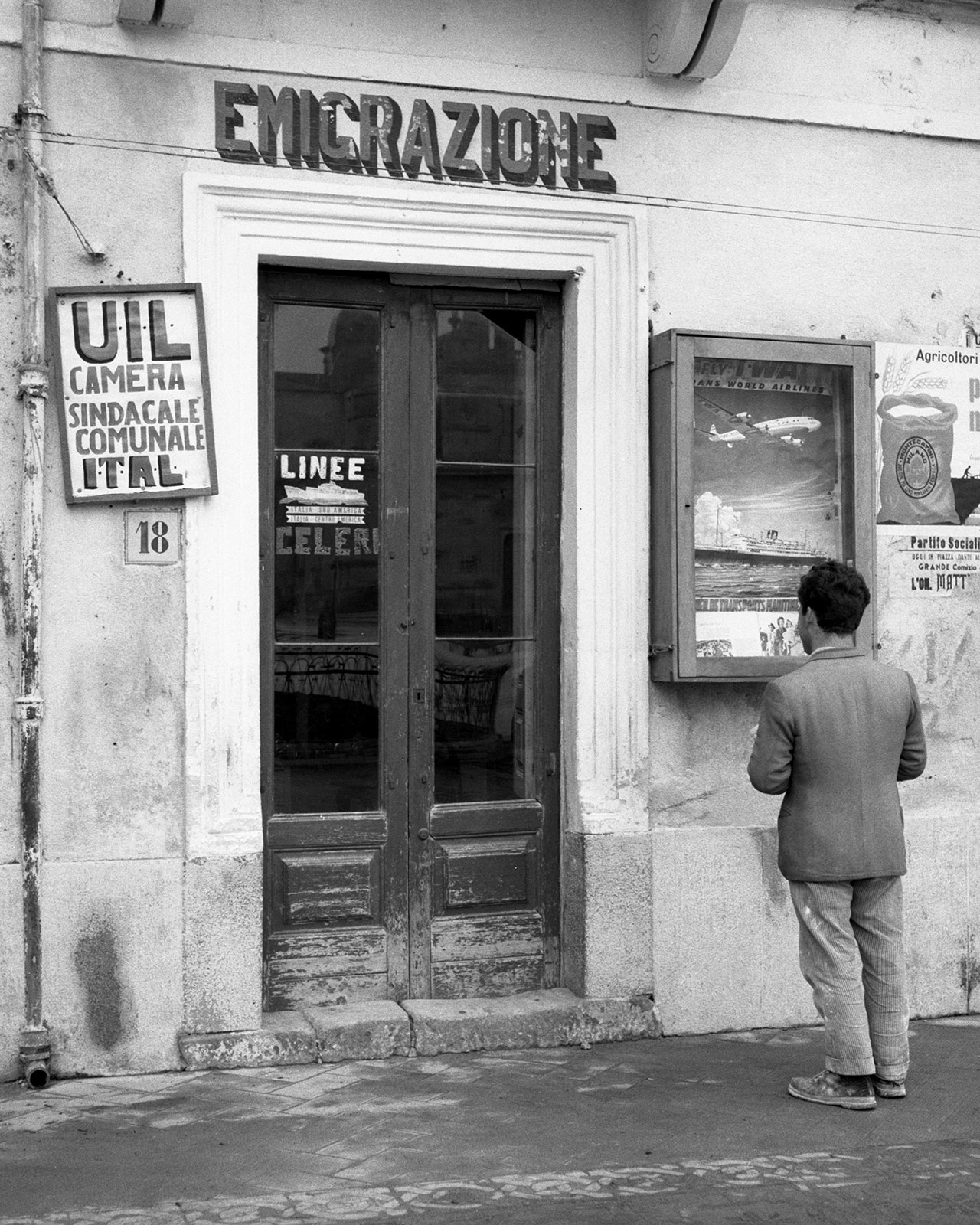In A Faraway Country
H14:00-H19:00
Online registration
H14:00-H19:00
Online registration
The conference will be held in Italian and English with a simultaneous translation service in both languages.
In a Faraway Country – Emigration and New Mobility
People are on the move. Although society has been shaken by the atmosphere of uncertainty brought about by the current pandemic, globalization and digitalization still act, perhaps more effectively than ever, as key drivers in making people seek out new opportunities or avert disadvantage. The reasons for moving between states, regions, or from the countryside to urban environments are manifold, ranging from necessity to personal choice. They can involve the search for better economic conditions, advantageous career prospects, or the maintenance of family connections.
The cyberspace renders job and career opportunities visible and instantly accessible to a much broader pool of available applicants, opening up employment markets to higher international competition. Public and private stakeholders compete for foreign labour while the lack of job opportunities in certain areas and sectors encourages movement to places where chances of being hired are still intact.
On the political side, previous years have seen heated debates on immigration and disagreement on the question of how the influx of migrants and refugees should be managed. At the European level, for instance, the so-called migration crisis has become a highly contested topic concerning the number of new arrivals, their distribution within the Eurozone, and the handling of migratory routes. There is however at least one other reality that in this regard rarely comes in to focus: a resurgent wave of emigration that is particularly pronounced in European countries of the South.
The two-day conference draws attention to this phenomenon and its implications for the individual and society. Multiple perspectives – covering both personal experience and scientific research – will shed light onto the topic, viewing the new emigration in the context of European mobility policies and the principle of free movement of people. Three points of interest will be discussed during the conference:
Collective memories – the historicity of emigration
The panel traces the intricate relationship between the perception of emigration, its nexus to national history, and puts this into relation with actual migration data. The equation of migration and decay and the fashioning of a national self-identity as a people of emigrants will be discussed, taking the example of Italy as a point of departure.
Crossing frontiers – case-studies from border areas
The panel focuses on border regions between Switzerland, Italy and France such as Swiss-Italian border, the South Tirol region or the Lake Geneva area to discuss the social and political specificities of border mobility. In addition, also ‘extended’ border cases will be considered, such as the case of long-distance commuting.
Residency 2.0 – Knowledge, Practice, and Mobility
The panel considers the model of the residency, which is deeply ingrained in the social fabric of the city of Rome. In its many historical manifestations, it brought foreigners in touch with Roman realities for reasons of artistic and academic research or religious pilgrimage. The digital transformation today challenges the classical concept and opens up the debate about new forms of mobility.
The event is organized in collaboration with the NCCR-On the Move, University of Neuchâtel, and the CNR IRPPS – Istituto di Ricerche sulla Popolazione e le Politiche Sociali.
The institutions are represented in the organising board by Enrico Pugliese and Corrado Bonifazi for the CNR IRPPS and Gianni D’Amato for NCCR On The Move and the University of Neuchâtel.
Programme
Thursday 17.06
14.00-14.30: Welcome and Introduction
Adrian Brändli, Istituto Svizzero
Mario Paolucci, CNR IRPPS
Gianni D’Amato, NCCR On The Move
Collective Memories I – The Historicity of Emigration
Moderated by Enrico Pugliese, CNR IRPPS
14.30-14.50: Matteo Sanfilippo, University of Tuscia, Reinventandosi le migrazioni italiane 1860-2020
14.50-15.10: Rosita Fibbi, University of Neuchâtel, How the Italians Became Blonds
15.10-15.30: Discussion
15.30-16.00: Break
Collective Memories II – The Historicity of Emigration Moderated by Flavia Cristaldi (La Sapienza)
16.00-16.20: Michele Colucci, CNR Istituto di studi sul Mediterraneo, Un intreccio di mobilità: emigrazione, migrazioni interne, ritorni e immigrazione nella storia italiana (anni 1960-70)
16.20-16.40: Toni Ricciardi, University of Geneva, Narrazione di una identità migrante: quando l’Italia ha nascosto il suo passato
16.40-17.00: Discussion
17.00-17.30: Break
Keynote Lecture
Moderated by Gianni D’Amato, NCCR on the move
17.30-17.45: Introduction
17.45-18.30: Donna Gabaccia, University of Toronto, Perspectives from Immobility: Do We Need New Terminologies for the Mobile?
18.30-19.00: Q&A Session
Friday 18.06
Crossing Frontiers I – Case-Studies from Border Areas
Moderated by Aldina Camenisch, NCCR on the move
14.00-14.20: Claudio Bolzman, University of Geneva, Cross-border workers from France in Switzerland: continuities and changes of a transnational familiar presence
14:20-14:40: Oscar Mazzoleni, University of Lausanne, Politicising border mobility among Switzerland and Italy
14.40-15.00: Discussion
15.00-15.30: Break
Crossing Frontiers II – Case-Studies from Border Areas
Moderated by Anita Manatschal, NCCR on the move
15.30-15.50: Mathias Lerch, Max Planck Institute for Demographic Research / Statistisches Amt Kanton Zürich, Demographic and educational selection of migrants from Italy and Germany to Switzerland
15.50-16.10: Elisa Cisotto, University of Bolzano, A demographic perspective on cross-border mobility in the Italian Alpine regions
16.10-16.30: Discussion
16.30-17:00: Break
Residency 2.0 – Knowledge, Practice, and Mobility
17.00-18:30: Panel discussion about the model of the residency in Rome and perspectives to mobility in higher education and artistic practice
Input Lectures
Dorothea Wohlfarth, DAI / DHI / Biblioteca Hertziana
Federica Martini, HES-SO Valais EDHEA
Panel Discussion
Elena Militello, Associazione South Working
Amanda Crameri, Head of the Higher Education Sector and Board Member at Movetia
Anna Arutyunova, Head of Global Network and International Affairs Sector, Pro Helvetia
Moderated by Sonia Filippazzi, Radio RAI 1
Foto di Franco Pinna, Archivio Franco Pinna, Roma
